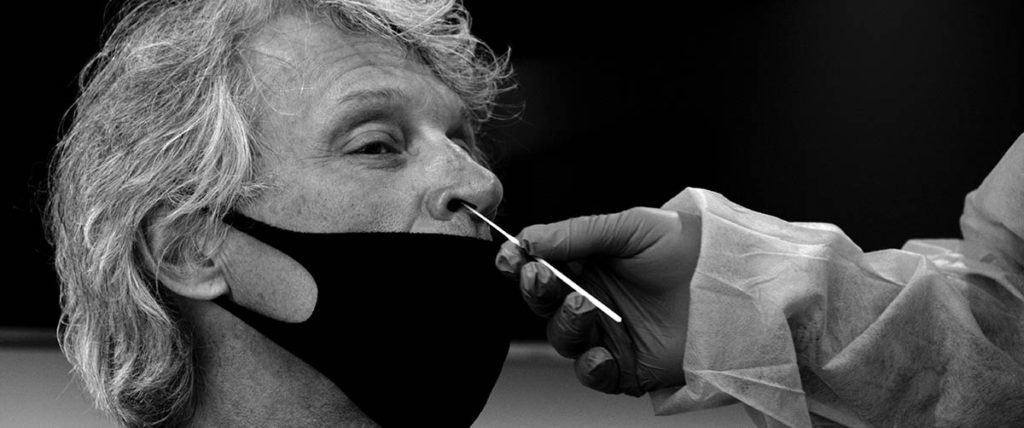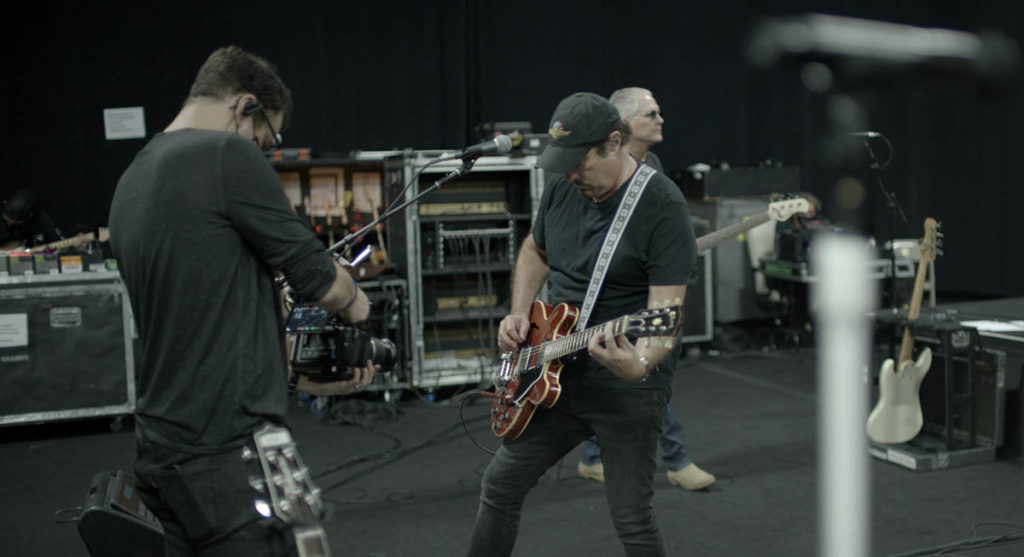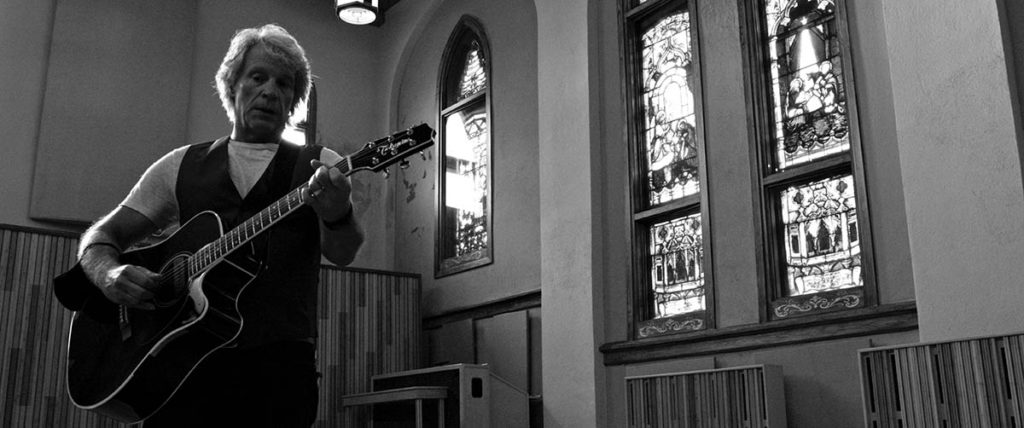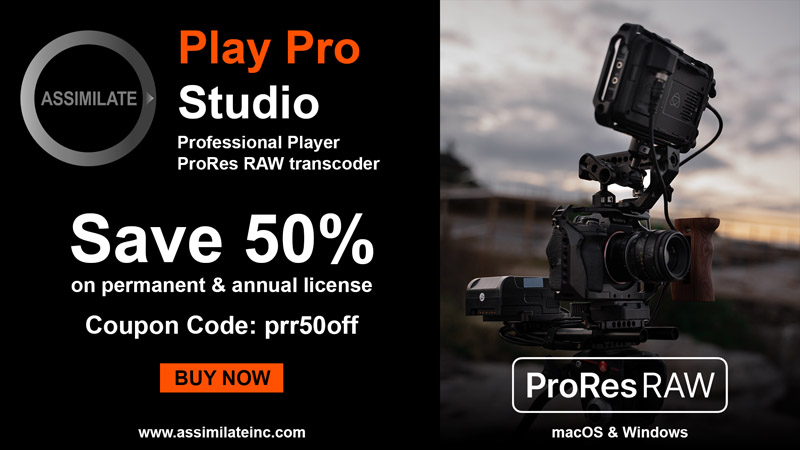Documentary Filmmaker Alex Horwitz Goes Vérité with the Pocket Cinema Camera 6K

Early on in his career, during his first feature film as a director (“Hamilton’s America”), Alex Horwitz’s fingers began itching to shoot. “I just felt like a fifth wheel on set when I wasn’t,” he said.
As a documentary director, Horwitz understands how crucial it is to capture everything. “When I’m interviewing, I certainly like to be hands-free and attentive to my subject. But when shooting vérité — either actively following a subject or being a fly on the wall — I was an extra body in the room. I was losing an opportunity to get another angle and a lot more coverage in the moment,” he added.
“I’m primarily a documentary director, and although I usually work with a dedicated DP, I’ve been shooting more and more in recent years. I’m basically always second camera wherever I go, but occasionally first,” Horwitz said. “Since I’m usually directing and producing at the same time that I’m shooting, my camera needs have been specifically about finding the right balance of light weight, intuitive menu and image quality. I had my eye on the Blackmagic Pocket Cinema Camera 6K for some time, and it hasn’t disappointed.”
Documenting Bon Jovi

The Pocket Cinema Camera 6K has been at Horwitz’s side ever since, including during filming for Bon Jovi’s “Unbroken” music video featuring the Invictus Games choir, as well as Bon Jovi’s concert documentary “On A Night Like This.”
“Almost without exception, I use it for vérité material with available light. If it’s an interview or beauty shoot, such as the lit portions of the ‘Unbroken’ music video, then I’m likely at a monitor, not shooting; although, I have used my Pocket Cinema Camera 6K as a locked-off second interview angle in the past,” explained Horwitz.
He continued, “During the ‘Unbroken’ music video, I was third camera for most of the vérité shots, just getting extra angles here and there. But we also shot a brief, documentary preamble with Jon Bon Jovi and Prince Harry in the booth at Abbey Road Studios’ Studio Two. It’s a very small space, and Harry’s team was very strict about bodies in the room, so it was just Jon Bon Jovi, Harry, my lead DP Bryant Fisher and me. We had only a moment with Harry, so a second angle was critical to get a usable moment, and the Pocket Cinema Camera 6K helped deliver.”
Horwitz also relies on the Pocket Cinema Camera 6K for exterior, on-the-run shoots due to its light footprint. “For an exterior B-roll unit on ‘On A Night Like This,’ I handed my Pocket Cinema Camera 6K over to my DP, and we ran around the streets of Nashville,” he said.
For “On A Night Like This,” Horwitz wanted the interstitial documentary moments to have a very cinematic feel, so that meant two camera coverage by DP Jonathan Furmanski and himself, with two of the five vérité days where the Pocket Cinema Camera 6K was the only camera in use. “We used it for all of the Nashville exteriors, since we wanted to be very light while going around the streets during the COVID-19 pandemic. Also, I shot the opening scene of the band getting COVID-19 tested before my DP was in town since I had the Pocket Cinema Camera 6K ready to go in my bag.”
Finding the Sweet Spot

The crux of Horwitz’s camera needs rested in a cinematic image with a lightweight form factor that he could easily carry around, that was ready to go at a moment’s notice and that he could use whenever he wanted to shoot.
“I played around with some DSLRs that offered great portability, but not a very robust image. Sometimes my DPs or ACs would prep a very stripped-down higher-end camera, but that went too far in the other direction. I’d find myself distracted from my subjects, dividing my attention between what was happening in the room and all the settings and functionality of the camera,” Horwitz noted. “I’d tell my DPs that I needed a ‘director proof’ rig, or at least an ‘Alex proof’ one, because I know my acumen is limited, and I’m often wearing director’s, producer’s and shooter’s hats at the same time. The Pocket Cinema Camera 6K is the perfect balance for someone like me.”
“The image cuts well with bigger camera packages’ footage, but the Pocket Cinema Camera 6K’s footprint fits in my backpack when I travel to a location. Whether I have one, two or more lead operators, I’m an additional camera any time I’m out in the field,” he added. “It’s a good outlet for me to wade into the minutiae of framing without driving a DP up the wall. I work with great documentary shooters who have keen eyes and know a lot more about cameras than I do. I count on them to get the bulk of my needs, but I know from years of being an editor what extra footage I’ll use. So, shooting myself, I get more options more efficiently. Also, depending on the nature of a shoot, it can be advantageous for me to have a camera in my hands. Sure, some moments call for stealth, with less gear between filmmaker and subject, but in other moments, the camera can be a nice way to get access.”

With a background in post, Horwitz also appreciates the Pocket Cinema Camera 6K’s included DaVinci Resolve Studio license and the camera to post workflow. “Nearly all the work I’ve done in recent years has been graded in DaVinci Resolve Studio. I love how organized it stays during a session. Color grading can be so subtle and subjective, and DaVinci Resolve Studio excels at keeping all the versions and permutations in order, so that my colorist can keep up with the speed of my eyes as we experiment. Also, whether I’m creating a Tri-X film look or trying to even out a lot of disparate archival elements, I’ve been known to ask to see a lot of grain, and DaVinci Resolve Studio always works great with that.”
About Alex Horwitz
Alex Horwitz is a director, writer, editor and producer with experience on films large and small. He directed and produced “Hamilton’s America,” the Peabody Finalist documentary that explores America’s founding through the creation of Lin-Manuel Miranda’s “Hamilton.” His recent film “Autonomy” is the first comprehensive documentary about self-driving cars, created with author Malcolm Gladwell. Horwitz’s other work as a director includes a music video and concert special for Bon Jovi, a short film starring Blue Man Group and “Alice Jacobs is Dead,” which won Best Horror Film at the San Diego Comic-Con. He edited and directed second unit on “The Legend of Hallowdega,” a short by renowned filmmaker Terry Gilliam. Horwitz’s other credits as an editor include “Iconoclasts,” “Oprah’s Master Class” and Joe Berlinger’s acclaimed feature documentary “Whitey.” He graduated from Wesleyan University, after which he worked as an assistant for director Julie Taymor before learning the ropes of film production with jobs on the Spider-Man and Bourne franchises, as well as Martin Scorsese’s “Shine a Light.” He lives in New York City with his wife and two sons.

